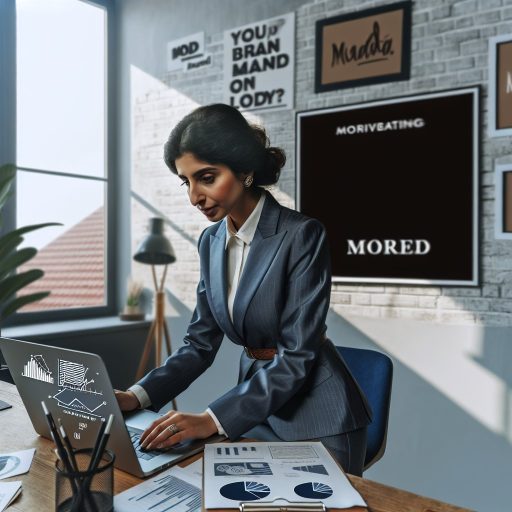I. Introduction
Collaborating with speakers plays a crucial role in the success of any event.
Effective collaboration allows for streamlined communication and clearer expectations.
It ensures that both organizers and speakers work towards a shared goal: delivering value to the audience.
A. Importance of Collaboration
Open communication with speakers enhances event quality.
Collaboration fosters creativity and innovation.
Engaged speakers feel more invested in the event’s success.
When organizers and speakers align their visions, they create a powerful synergy.
This synergy elevates the overall experience.
B. Benefits for Organizers and Speakers
Successful collaboration offers numerous benefits.
For organizers, it results in smoother logistics and better event flow.
Organized communications lead to fewer misunderstandings.
This makes planning more efficient.
Collaborative efforts result in speakers who are well-prepared.
They are aligned with the event’s goals.
Speakers also gain significant advantages.
They receive insights about the audience and its expectations.
This information allows them to tailor their presentations effectively.
A collaborative approach provides opportunities for speakers to network.
This shared interaction can lead to future partnerships and projects.
C. Key Aspects Covered in the Blog
In this blog, we will explore several essential aspects of effective collaboration.
Transform Your Career Today
Unlock a personalized career strategy that drives real results. Get tailored advice and a roadmap designed just for you.
Start NowFirst, we will discuss best practices for initial communication.
Next, we will delve into setting clear expectations and providing constructive feedback.
Lastly, we will examine the role of technology in facilitating collaboration.
By addressing these core areas, we aim to provide valuable insights.
Through these strategies, both organizers and speakers can maximize their potential.
The ultimate goal is to create a memorable event, leaving a lasting impact on the audience.
Understanding the Role of the Speaker
Definition of the Speaker’s Role in an Event
The speaker serves as the voice of the event.
Their responsibility extends beyond merely delivering content.
They engage the audience and enhance the overall experience.
A well-prepared speaker captivates attention and leaves a lasting impact.
Speakers communicate key messages while aligning with the event’s theme.
Their role is crucial in achieving the event’s objectives.
They set the tone and establish a connection with attendees.
Effective speakers inspire, educate, and provoke thought.
Their expertise and charisma can unify diverse audiences.
Understanding their role can significantly enhance event success.
Different Types of Speakers
Event organizers often engage various types of speakers to fulfill different roles.
Each type of speaker brings unique strengths to the table.
Let’s explore the most common speaker categories.
- Keynote Speakers: Keynote speakers are the main attraction at an event.
- Panelists: Panelists participate in discussions and respond to audience questions.
- Workshop Facilitators: Workshop facilitators focus on hands-on learning experiences.
- Motivational Speakers: Motivational speakers energize and uplift audiences.
- Subject Matter Experts: These speakers possess deep knowledge and a wealth of experience.
Importance of Aligning Goals Between the Organizer and the Speaker
Goal alignment between the event organizer and the speaker is vital for success.
Transform Your Career Today
Unlock a personalized career strategy that drives real results. Get tailored advice and a roadmap designed just for you.
Start NowUnderstanding each party’s objectives prevents miscommunication.
Here are several reasons why aligning goals is crucial:
- Establishes Clear Expectations: Aligning goals sets clear expectations for both parties.
- Enhances Event Focus: When goals align, the event maintains focus.
- Drives Audience Relevance: Speakers aligned with the organizer’s goals demonstrate relevance to the audience.
- Facilitates Better Planning: Clear goals empower effective event planning.
- Encourages Measurable Outcomes: When organizers and speakers share common goals, they can measure success effectively.
- Fosters Lasting Relationships: Goal alignment establishes a foundation for long-term relationships.
Understanding a speaker’s role is essential for effective collaboration.
Identifying the different types of speakers provides clarity on what each brings to the table.
When event organizers and speakers align their goals, they create a successful synergy.
This collaboration enhances event quality and elevates the overall experience for attendees.
Both organizers and speakers must engage in open communication.
They should work together to create a clearly defined vision for the event.
Additionally, speakers should remain adaptable and receptive to feedback.
This flexibility allows for real-time adjustments to enhance audience engagement.
Organizers must provide speakers with pertinent information about the audience.
Key details about demographics and interests can significantly influence content delivery.
When speakers understand their audience, they can tailor their messages accordingly.
To foster a successful collaboration, organizers should offer resources that support the speaker’s preparation.
These may include background information on the event, logistical details, and audience insights.
Providing this information ensures that speakers can deliver focused and impactful presentations.
The success of an event relies on the harmonious partnership between speakers and organizers.
Recognizing the critical role speakers play in an event can enhance collaboration.
Different types of speakers contribute specific strengths to enrich the experience.
Aligning objectives between both parties ensures clear communication and shared vision.
Transform Your Career Today
Unlock a personalized career strategy that drives real results. Get tailored advice and a roadmap designed just for you.
Start NowBy embracing the nuances of this collaboration, organizers and speakers can achieve event success together.
Importance of Establishing Clear Communication from the Start
Effective collaboration hinges on clear communication.
Initiating your partnership with clear dialogue sets a positive tone.
It fosters trust and minimizes misunderstandings.
When both parties speak openly, they build a solid foundation for success.
Establishing communication norms early can significantly enhance your working relationship.
Start by outlining your communication preferences.
Discuss which platforms will facilitate your conversations.
Will you use email, messaging apps, or phone calls?
Also, consider how often you need to check in.
Setting consistent intervals for updates can keep everyone informed.
By doing so, you create a rhythm that streamlines collaboration.
Furthermore, clarify the preferred response times.
Establish timelines for when to expect replies.
Knowing when to follow up can alleviate frustration.
If a speaker knows you expect a reply within a certain period, they are more likely to adhere to that timeline.
Effective communication fosters a sense of accountability and encourages prompt responses.
Key Points to Discuss Prior to the Event (Topics, Sessions, Logistics)
Before any event, it is vital to cover critical elements together.
These key points ensure that everyone is on the same page.
Discussing topics and sessions helps align expectations.
Transform Your Career Today
Unlock a personalized career strategy that drives real results. Get tailored advice and a roadmap designed just for you.
Start NowIt also provides clarity on the event’s overall theme and objectives.
- Define Topics: Determine the main subjects of interest for the audience.
- Sessions Breakdown: Plan the structure of each session.
- Logistics Coordination: Discuss practical aspects like the event date, location, and time.
- Promotion and Marketing: Collaborate on the marketing strategy to promote the event.
- Audience Engagement: Discuss ways to engage the audience before and during the event.
Ensuring Mutual Understanding of Roles and Responsibilities
Defining roles and responsibilities eliminates confusion.
Both parties should know their duties concerning the event.
This clarity helps streamline processes and boosts efficiency.
When everyone understands their role, they can work better together.
- Speaker Responsibilities: Outline what you expect from the speakers.
- Organizer Responsibilities: Clearly define what you will manage.
- Communication Role: Assign a point of contact for all communications.
- Feedback Mechanism: Create a system for providing feedback post-event.
- Contingency Planning: Develop procedures for unexpected changes.
See Related Content: Effective Metadata Management for Web Content Managers
Effective Communication Strategies
A. Importance of Ongoing Communication Throughout the Planning Process
Effective collaboration hinges on strong communication.
Ongoing dialogue throughout the planning process fosters trust between you and the speakers.
When you maintain an open line of communication, you ensure everyone remains aligned with the goals.
- Clear communication reduces the risk of misunderstandings.
- Regular updates keep all parties informed of changes.
- Timely feedback helps adjust plans, ensuring activities run smoothly.
- Encouraging questions from speakers clarifies expectations.
- Addressing concerns promptly builds a positive working relationship.
Continuous communication nurtures collaboration.
As the planning phase evolves, adapt your communication methodologies to meet shifting needs.
Consistently engage speakers in conversations about their expectations and ideas.
B. Utilizing Various Communication Channels (Emails, Meetings, Messaging Apps)
To maximize effectiveness, employ multiple communication channels.
Different mediums serve unique purposes and cater to various preferences.
By combining them, you streamline the communication process.
- Emails: Use emails for formal documentation and to share detailed information.
- Meetings: Schedule regular meetings to foster real-time discussions and brainstorming sessions.
- Messaging Apps: Utilize instant messaging for quick queries and informal catch-ups.
Choosing the right channel is essential.
For instance, use emails to share comprehensive agendas or timelines.
Reserve meetings for complex discussions that need collaboration.
Messaging apps serve well for quick updates, ensuring all parties stay engaged.
Over time, evaluate which channels work best.
Transform Your Career Today
Unlock a personalized career strategy that drives real results. Get tailored advice and a roadmap designed just for you.
Start NowEncourage speakers to share preferences to increase engagement.
Flexibility in your communication approach enhances collaboration effectiveness.
C. Active Listening Skills and Their Impact on Collaboration
Active listening is fundamental in any collaboration.
This skill involves fully focusing on the speaker.
By doing so, you validate their ideas and concerns.
- Pay close attention during conversations; don’t interrupt.
- Make eye contact and use body language to show engagement.
- Summarize what the speaker said to ensure comprehension.
- Ask clarifying questions if you’re uncertain about their points.
- Provide feedback that reflects your understanding of their message.
Active listening establishes rapport with speakers.
It shows that you value their input and are committed to the collaboration.
When speakers feel heard, they become more open to sharing ideas and feedback.
Practicing active listening has several benefits.
It improves the quality of collaboration.
Furthermore, it leads to richer discussions, yielding more innovative solutions to challenges.
Effective communication strategies are vital for collaborating with speakers.
Ongoing communication, utilizing various channels, and practicing active listening create a robust collaboration framework.
By focusing on these strategies, you foster a productive environment that enhances outcome quality.
Uncover the Details: Building Brand Loyalty: Strategies and Techniques
Necessary Materials and Resources for the Speaker
When collaborating with speakers, the first step involves equipping them with essential resources.
These resources should include:
- Guidelines: Clear guidelines help speakers understand expectations. Include information about presentation format, time limits, and content restrictions. Offer templates if possible.
- Audience Insights: Tailoring presentations requires understanding the audience’s interests, age range, and expertise. Knowledge of audience demographics enables speakers to connect effectively.
- Relevant Background Information: Provide speakers with context about the event’s purpose. Share previous event highlights, feedback, and emerging industry trends.
- Sample Questions: Prepare a list of potential audience questions. This list gives speakers an idea of common inquiries and helps them prepare answers in advance.
Sharing Information About the Event’s Theme, Location, and Audience Demographics
Effective collaboration also hinges on clearly communicating critical event details.
Always ensure speakers receive:
- Event Theme: Conveying the theme allows speakers to align their content with the overall message. Highlight key topics and objectives that the event aims to achieve.
- Location Details: Providing logistical information about the venue is vital. Include maps, parking arrangements, and nearby accommodations. This reduces stress for speakers on the event day.
- Audience Demographics: A comprehensive breakdown of the audience can assist in tailoring the content. Share information like professional backgrounds, interests, and geographic locations.
- Event Schedule: Outline the event itinerary, including time slots for speakers and breaks. This transparency ensures everyone remains coordinated and punctual.
Importance of Providing Technical Support and Equipment Availability
Technical support plays a significant role in a speaker’s preparedness.
Transform Your Career Today
Unlock a personalized career strategy that drives real results. Get tailored advice and a roadmap designed just for you.
Start NowEnsuring that speakers have access to the required equipment can make a world of difference. Here are critical elements to consider:
- Audio-Visual Equipment: Provide information regarding available audio-visual tools. Specify speakers, projectors, microphones, and screens for presentations.
- Technical Support Staff: Assign dedicated technical staff to assist speakers during setup and troubleshooting. Quick assistance can alleviate potential technical hurdles.
- Compatibility Checks: Ensure that speakers’ devices are compatible with available equipment. Encourage speakers to test their presentations before the actual event starts.
- Internet Connectivity: Inform speakers about the Wi-Fi availability and speed. Reliable internet access is essential for presentations requiring online resources or streaming.
By focusing on these elements, organizers empower speakers to deliver engaging and impactful presentations.
The collaboration flourishes when speakers feel equipped and supported.
The key lies in transparency, guidance, and timely communication.
To summarize the collaboration strategy:
Start by supplying comprehensive resources.
Provide essential guidelines, audience insights, and event details.
Ensure compatibility of technical equipment and offer robust support.
Each step strengthens the collaboration and enhances the final presentation.
Implementing these strategies requires proactive planning and a willingness to communicate openly.
Set a tone of collaboration right from the start.
Prepare materials in advance, involve speakers in discussions, and listen to their feedback.
Continuously improve the resources based on previous experiences.
Doing so builds a foundation for future events and establishes trust.
Elevating Speaker Collaboration for Better Events
Effective speaker collaboration is critical to successful events.
Providing comprehensive resources, ensuring clarity of communication, and offering strong technical support are essential steps.
These strategies not only empower speakers but also elevate the overall event experience for attendees.
By investing in this collaborative process, organizers will foster successful partnerships that yield impactful presentations.
Every effort taken to support speakers translates to a more engaging event, leaving lasting impressions on the audience.
Explore Further: SEO Basics Every Digital Marketer Should Know
Transform Your Career Today
Unlock a personalized career strategy that drives real results. Get tailored advice and a roadmap designed just for you.
Start NowFostering a Collaborative Environment
Encouraging Input and Feedback from Speakers
Establishing a collaborative environment starts with actively encouraging input and feedback from speakers.
This practice empowers speakers and fosters mutual respect.
You can implement several strategies to invite their contributions:
- Schedule Pre-Event Meetings: Host meetings to discuss the topics and objectives. This allows speakers to voice their ideas and opinions early.
- Solicit Suggestions: Ask speakers for their input on the agenda. This makes them feel valued and ensures their expertise shapes the event.
- Provide Surveys: Use surveys pre- and post-event to gather feedback. Analyze responses to inform future collaborations.
- Implement Review Sessions: After an event, review its success with speakers. Discuss what worked and what didn’t, encouraging candid conversations.
- Recognize Contributions: Acknowledge speakers’ feedback publicly. Appreciation motivates continual input and strengthens the relationship.
When speakers feel that their feedback is valued, they engage more deeply.
This engagement results in improved content delivery and a more dynamic event overall.
Encourage different perspectives, and invite speakers to share unique experiences.
This approach enriches the dialogue and enhances the collaboration.
Building a Partnership Rather than a Hierarchical Relationship
In any collaborative effort, it is crucial to build a partnership dynamic.
A partnership approach minimizes hierarchy, leading to more open communication.
You can achieve this by:
- Defining Roles Clearly: Clearly outline each participant’s responsibilities. This transparency fosters accountability and reduces confusion.
- Encouraging Shared Goals: Work with speakers to identify mutual objectives. Emphasizing shared goals promotes teamwork and collective effort.
- Inviting Co-Creation: Involve speakers in content creation. By working together, you create a sense of ownership and investment in the final product.
- Fostering Equal Voice: Encourage all speakers to articulate their thoughts. Creating an environment of equal voice makes collaboration more fulfilling.
- Promoting Inclusivity: Invite input from diverse speakers. An inclusive atmosphere enhances creativity and problem-solving abilities.
By establishing a partnership rather than a hierarchy, both parties become invested in the success of the collaboration.
A partnership leads to richer discussions and more innovative solutions.
When speakers are treated as partners, their enthusiasm for the project grows.
This enthusiasm translates into better performances and more impactful interactions with audiences.
Creating Opportunities for Informal Interactions to Build Rapport
Informal interactions play a vital role in fostering collaboration.
They facilitate rapport building and create a comfortable atmosphere.
Consider the following methods to encourage informal interactions:
- Organize Social Events: Plan casual gatherings outside of formal settings. These can include dinners, game nights, or happy hours.
- Utilize Break Times: Encourage networking during breaks. Create a welcoming space where speakers can mingle and connect.
- Implement Team Activities: Use icebreakers or team-building exercises during meetings. These activities promote camaraderie and ease tension.
- Create Dedicated Communication Channels: Use messaging apps or social media groups for informal chats. These channels keep communication flowing and maintain connections.
- Encourage Humor: Maintain a light-hearted environment. Sharing a laugh fosters connection and breaks down barriers.
Informal interactions not only strengthen bonds but also facilitate open dialogue.
These relaxed settings allow for candid discussions.
Speakers may feel more comfortable sharing innovative ideas and unique experiences in these casual environments.
Transform Your Career Today
Unlock a personalized career strategy that drives real results. Get tailored advice and a roadmap designed just for you.
Start NowMoreover, stronger relationships lead to better collaboration.
When trust and rapport are present, communication becomes more effective.
Strategies for Enhancing Collaborative Experiences
Fostering a collaborative environment involves encouraging input, building partnerships, and facilitating informal interactions.
Each strategy complements the others, creating a holistic approach to collaboration.
Involving speakers actively in the process enhances their buy-in and engagement.
Ultimately, establishing a culture of collaboration leads to improved outcomes for all parties involved.
By prioritizing these approaches, you can significantly improve your collaborations with speakers.
A culture of respect, equal partnership, and rapport will enhance not just the quality of the presentations, but also the overall experience for everyone involved.
Embrace these strategies to develop lasting relationships with your speakers, ensuring future collaborations are just as fruitful.
Delve into the Subject: Navigating Film Industry Contracts as a Director

Managing Logistics Efficiently
Successful collaboration with speakers hinges on effective logistical management.
It ensures a smooth event execution and enhances the overall experience for everyone involved.
Neglecting these logistics can lead to chaos and frustration.
Here we will discuss the importance of a well-structured schedule, key logistical considerations, and contingency planning strategies.
A. Importance of a Well-Structured Schedule Leading Up to the Event
A well-organized schedule sets the tone for the entire event.
It provides clarity for both the speakers and the organizers.
Here are some key reasons why having a structured schedule is essential:
- Clarity: A clear schedule communicates expectations. It outlines responsibilities and timelines for everyone involved.
- Efficiency: An efficient schedule minimizes downtime. This allows speakers to focus on their content rather than logistical issues.
- Time Management: A structured approach aids in adhering to timelines. This ensures that all aspects of the event are completed on time.
- Coordination: A detailed schedule fosters better coordination among team members. Each person knows when and where to perform their tasks.
- Flexibility: A well-planned schedule can adapt to changes. This helps in accommodating last-minute alterations.
Creating this schedule requires collaboration with the speakers.
Discuss their preferences regarding timings and durations.
Allow speakers to express their needs and concerns.
Transform Your Career Today
Unlock a personalized career strategy that drives real results. Get tailored advice and a roadmap designed just for you.
Start NowUse their feedback to make adjustments that enhance overall efficiency.
B. Addressing Logistical Considerations (Travel, Accommodations, Rehearsal Times)
Addressing logistical considerations is crucial for a seamless experience.
Paying attention to travel arrangements, accommodations, and rehearsal times can significantly reduce stress.
Here’s how you can manage these key elements:
- Travel Arrangements:
- Book flights and transportation well in advance. This avoids last-minute complications.
- Consider the speakers’ preferences for airlines and routes. Offer options that suit their comfort.
- Prepare a travel itinerary that includes all necessary details.
- Book flights and transportation well in advance. This avoids last-minute complications.
- Accommodations:
- Choose hotels close to the event venue. This minimizes travel time for speakers.
- Provide options that accommodate various budgets. This ensures comfort for all speakers.
- Confirm reservations well ahead of time. Keep open lines of communication with the hotel.
- Choose hotels close to the event venue. This minimizes travel time for speakers.
- Rehearsal Times:
- Schedule rehearsals well before the event date. This allows ample time for adjustments.
- Coordinate with speakers to determine preferred rehearsal times. This fosters a collaborative spirit.
- Ensure adequate time between rehearsals and the event. This allows for any unexpected changes.
- Schedule rehearsals well before the event date. This allows ample time for adjustments.
By addressing these logistical aspects, you create an environment where speakers can thrive.
They can focus on delivery instead of worrying about logistics.
C. Contingency Planning for Unforeseen Circumstances
Even with the best planning, unforeseen circumstances can arise.
Having a solid contingency plan helps mitigate disruptions.
Here are critical points to consider for effective contingency planning:
- Identify Potential Risks:
- Consider common issues such as travel delays or technical failures. Identify how these could impact the event.
- List out possible challenges that might arise. Being prepared increases your response options.
- Consider common issues such as travel delays or technical failures. Identify how these could impact the event.
- Establish Backup Plans:
- Create alternative arrangements for travel and accommodations. This helps avoid scrambling on event day.
- Develop a plan for technical troubleshooting. This keeps presentations running smoothly.
- Prepare backup speakers or content. This maintains program flow, even with unexpected changes.
- Create alternative arrangements for travel and accommodations. This helps avoid scrambling on event day.
- Communicate Clearly:
- Keep all parties informed about contingency plans. Transparency builds trust and reassurance.
- Provide all necessary contact information. Ensure that everyone knows who to reach out to during an emergency.
- Keep all parties informed about contingency plans. Transparency builds trust and reassurance.
- Practice Responses:
- Conduct drills or run-throughs for potential crisis situations. This prepares your team for immediate action.
- Develop a checklist of responses for common issues. Easy access to information improves reaction times.
- Conduct drills or run-throughs for potential crisis situations. This prepares your team for immediate action.
Contingency planning should not be an afterthought.
It requires deliberate efforts from the outset.
By taking these steps, you can navigate unforeseen challenges smoothly and effectively.
Effective logistics management enhances the collaboration experience between speakers and organizers.
A structured schedule, thorough logistical consideration, and robust contingency planning are vital components of this endeavor.
Prioritizing these elements ensures a successful event.
It also cultivates positive relationships with speakers.
Through organized processes and open communication, everyone can contribute to an impactful event.
Follow-Up and Feedback
Importance of Post-Event Communication with Speakers
Effective collaboration doesn’t end with the event.
Follow-up communication plays a crucial role in the overall experience.
Post-event interactions show gratitude and allow for deeper connections.
Transform Your Career Today
Unlock a personalized career strategy that drives real results. Get tailored advice and a roadmap designed just for you.
Start NowHere are several reasons why this communication is vital:
- It expresses appreciation for the speaker’s time and effort.
- It fosters a sense of community among speakers and organizers.
- It reinforces the value of their contributions.
- It opens pathways for future dialogue and projects.
- It allows for the exchange of additional resources or information.
A simple thank-you email, a personalized note, or a social media shout-out can go a long way.
Show genuine interest in their thoughts post-event.
Ask them how they felt about the event.
This inquiry can provide valuable insights into their experience.
Engaging in this dialogue cultivates trust and respect.
Gathering Feedback on Their Experience and the Collaborative Process
Collecting feedback from speakers is crucial for continuous improvement.
Their insights can reveal areas for refinement.
Here’s how to effectively gather feedback:
- Use surveys tailored to the speaker’s experience.
- Conduct one-on-one debriefing sessions.
- Encourage honest and constructive criticism.
- Ask open-ended questions for deeper insights.
- Inquire about specific aspects of the collaboration process.
For example, ask them what worked well.
Also, find out what could be improved.
Understanding their perspective fosters a better collaborative environment for future endeavors.
Gathering feedback demonstrates that their opinions matter.
It showcases your commitment to learning and growth.
Additionally, consider using anonymity in feedback requests.
This strategy often encourages more truthful responses.
Confidentiality allows speakers to express their thoughts without reservation.
Building Long-Term Relationships for Future Collaboration Opportunities
Successful events often lead to ongoing relationships with speakers.
Nurturing these connections enhances future collaborations.
Building a network of professional relationships offers various benefits:
Transform Your Career Today
Unlock a personalized career strategy that drives real results. Get tailored advice and a roadmap designed just for you.
Start Now- It increases the likelihood of repeat partnerships.
- It enhances collaborative effectiveness based on prior experience.
- It allows for mentorship opportunities between experienced speakers and newer ones.
- It encourages shared resources and cross-promotion among connections.
- It fosters a supportive community in your field.
To maintain these relationships, regular communication is key.
Reach out periodically to check in, share updates, or send industry news.
This cultivates camaraderie and mutual interest.
Consider inviting speakers to exclusive networking events.
Offer opportunities for them to share their expertise in a more informal setting.
This strategy encourages deeper connections.
Moreover, share your successes with speakers after the event.
Whether it’s metrics from the event or testimonials from attendees, keeping them informed fosters a sense of shared accomplishment.
Finally, acknowledge their achievements after your collaboration.
Celebrate their projects or milestones publicly.
This not only builds goodwill but also reinforces the professional bond.
Effective Collaboration for Memorable Events
In this blog post, we explored key strategies for effective collaboration with speakers.
First, establishing clear communication proves essential.
Effective communication underpins all successful interactions.
Next, understanding the speaker’s objectives helps align goals for the event.
Engaging early with speakers facilitates this understanding.
Additionally, creating a flexible agenda allows speakers to express their ideas freely.
Finally, offering feedback encourages improvement and fosters collaboration.
Emphasizing the Value of Effective Collaboration
Effective collaboration enhances the event experience for both organizers and speakers.
It nurtures creativity and innovation.
Transform Your Career Today
Unlock a personalized career strategy that drives real results. Get tailored advice and a roadmap designed just for you.
Start NowWhen speakers feel supported, they deliver more engaging presentations.
Open collaboration leads to a better understanding of audience needs and preferences.
It also helps tailor content effectively.
This synergy between organizers and speakers ultimately elevates the event’s impact.
Encouragement for Organizers to Apply These Strategies
As event organizers, you hold the responsibility to create memorable experiences.
Implement the strategies discussed above to foster collaboration.
Start by initiating open lines of communication early on.
Schedule regular check-ins to ensure alignment.
Develop a shared vision that excites both your team and the speakers.
Flexibility in the agenda can significantly enhance speaker performance.
Remember, successful events result from teamwork and collaboration.
Encourage speakers to contribute their insights and ideas freely.
Value their input as you work together toward a common goal.
By applying these strategies, you empower both yourself and your speakers.
This leads to captivating events that resonate with audiences.
Take these steps seriously and watch your events flourish.
Effective collaboration transforms the ordinary into the extraordinary.
Additional Resources
Countering Disinformation Effectively: An Evidence-Based Policy …




